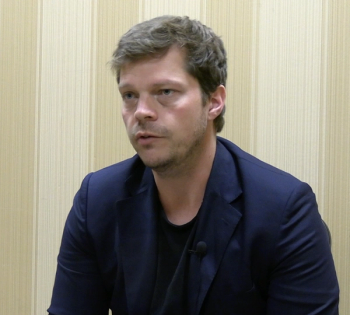
Peter Wentzell Receives 2015 EAS Award for Chemometrics
Peter D. Wentzell has received the 2015 Award for Outstanding Achievements in Chemometrics from the Eastern Analytical Symposium (EAS). The award was presented to Wentzell at an oral symposium at the 2015 EAS conference in Somerset, New Jersey, on November 17.
Peter D. Wentzell has received the 2015 Award for Outstanding Achievements in Chemometrics from the Eastern Analytical Symposium (EAS). The award was presented to Wentzell at an oral symposium at the 2015 EAS conference in Somerset, New Jersey, on November 17.
Wentzell is a professor of chemistry at Dalhousie University in Halifax, Nova Scotia, Canada. His general research interests are in the area of chemometrics, with a focus on the study of the experimental measurement errors, signal processing, bioinformatics, and exploratory data analysis. The role of measurement errors in multivariate data analysis has been a central theme of his research, with an emphasis on the characterization of measurement error structure and the development of methods to make optimal use of measurement error information in chemometric methods. This work led to the development of maximum likelihood principal components analysis (MLPCA) which provided a general framework for the optimal estimation of subspace models in multivariate analysis. These principles have been extended to a variety of applications within the field of chemistry and beyond, including alternative approaches to exploratory data analysis, including projection pursuit methods.
Wentzell obtained his bachelor of science degree in chemistry from Dalhousie University in 1982 and his PhD in analytical chemistry from Michigan State University, in East Lansing, Michigan, in 1987, working under the direction of Prof. Stanley Crouch. He then worked as a Natural Sciences and Engineering Research Council (Canada) post-doctoral fellow with Adrian Wade at the University of British Columbia, in Vancouver, British Columbia, Canada, before taking up his current position at Dalhousie. He also spent sabbatical leave periods at the Center for Process Analytical Chemistry at the University of Washington with Prof. Bruce Kowalski in 1996, and in the Biology Department at the University of New Mexico with Prof. Margaret Werner-Washburne in 2003.
Wentzell served as the North American Editor for the journal Chemometricsand Intelligent Laboratory Systems from 1998 to 2006 and was awarded the 2014 Kowalski Prize for the Best Theoretical Paper in the Journal of Chemometrics (2012–2013) for his paper “Exploratory Data Analysis with Noisy Measurements.” In recognition of his academic achievements at Dalhousie University, he was named a Faculty of Science Killam Professor (2009–2014) and presented with the Faculty of Science Award for Excellence in Teaching (2010) and the Outstanding Faculty Advisor Award in 2011.
Newsletter
Get essential updates on the latest spectroscopy technologies, regulatory standards, and best practices—subscribe today to Spectroscopy.




